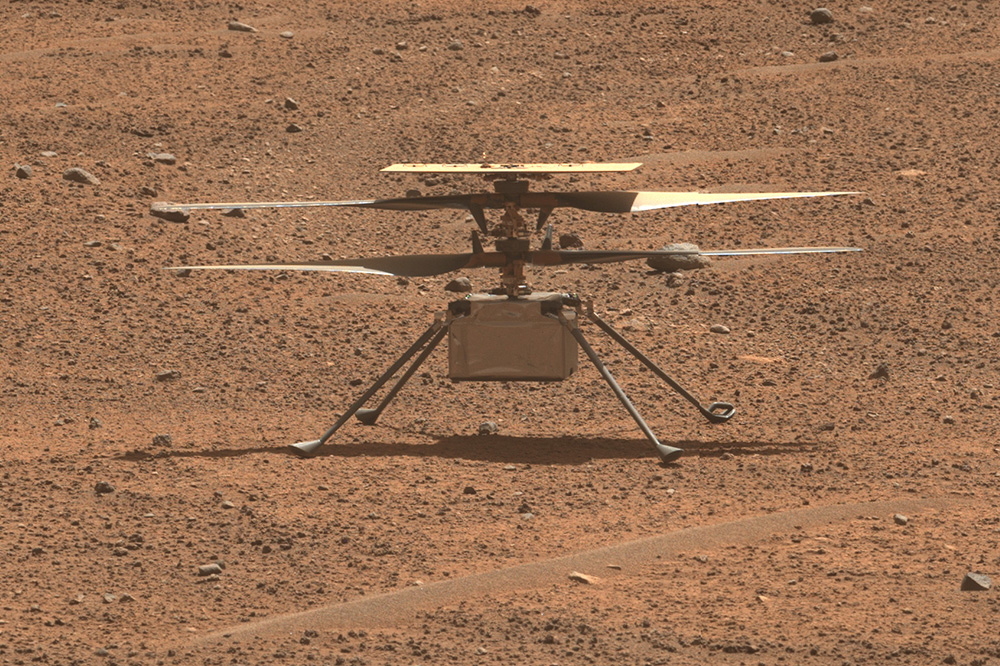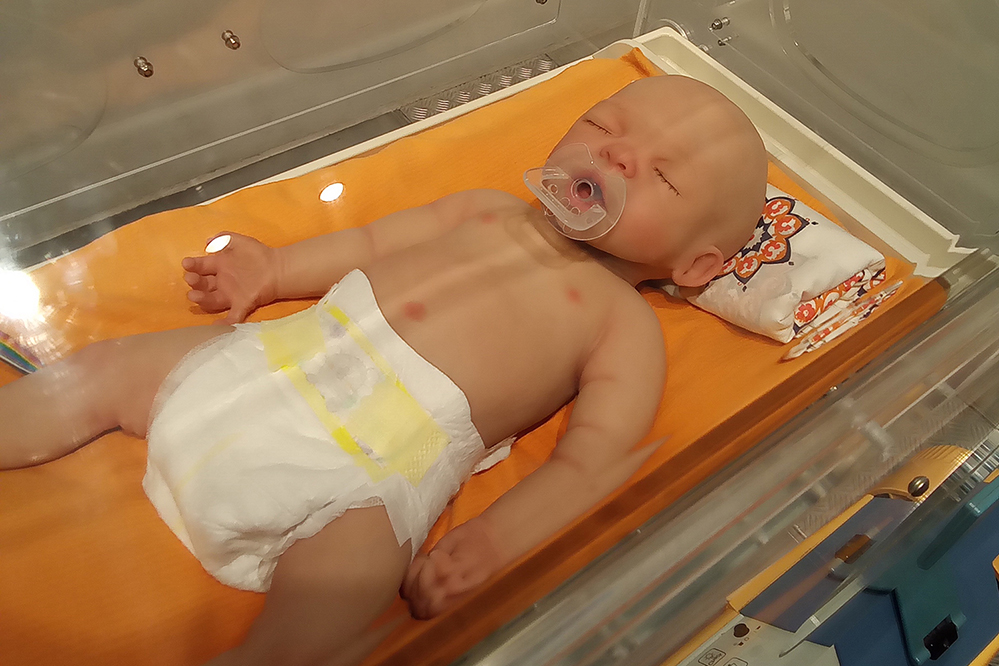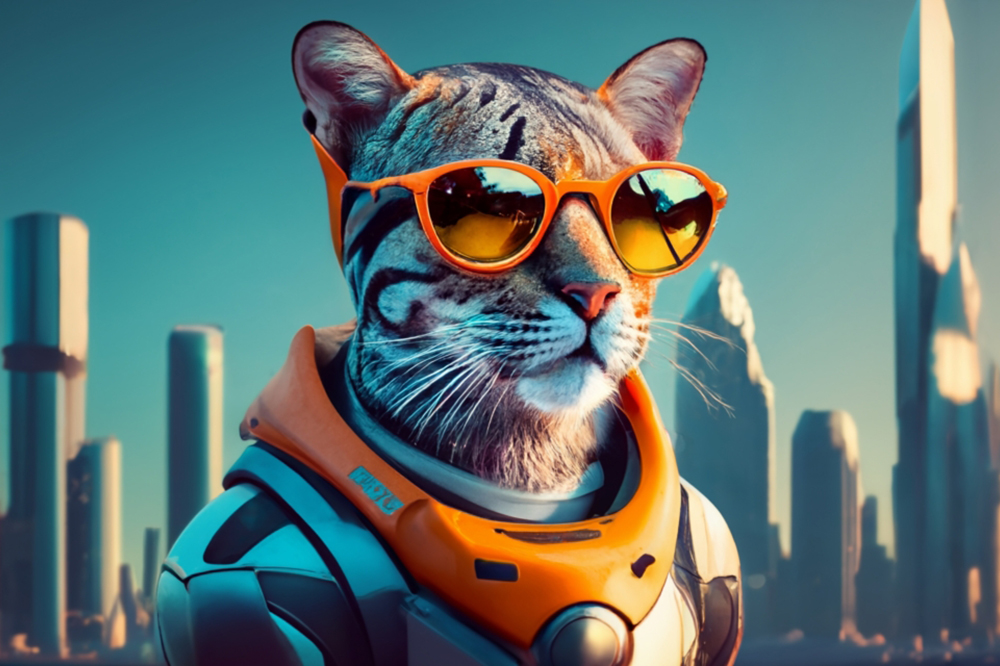On 19 April 2021, Ingenuity successfully performed an experiment on Mars (Photo: NASA). The little helicopter flew vertically into the air, took a selfie with its shadow, and landed safely back on the ground. There are many expectations and aspirations associated with the red planet. Its surface is currently being explored in an unprecedented way. In a few years, humans are expected to travel to Mars. According to Digital Trends, Ingenuity arrived as a technology demonstration, “with the team keen to see if such a contraption could become the first to achieve powered, controlled flight on another planet” (Digital Trends, 26 September 2023). The platform reported on September 26, 2023: “Just a week after setting a new altitude record on Mars, NASA’s impressive Ingenuity helicopter has just flown faster than ever before, reaching a speed of 17.9 mph (8 meters per second) during its 60th flight. Its previous record was 15 mph (6.5 m/s) in a flight earlier this year.” (Digital Trends, 26 September 2023) It can already be said that the deployment of the small helicopter on Mars is a complete success.
ChatGPT can See, Hear, and Speak
OpenAI reported on September 25, 2023 in its blog: “We are beginning to roll out new voice and image capabilities in ChatGPT. They offer a new, more intuitive type of interface by allowing you to have a voice conversation or show ChatGPT what you’re talking about.” (OpenAI Blog, 25 September 2023) The company gives some examples of using ChatGPT in everyday life: “Snap a picture of a landmark while traveling and have a live conversation about what’s interesting about it. When you’re home, snap pictures of your fridge and pantry to figure out what’s for dinner (and ask follow up questions for a step by step recipe). After dinner, help your child with a math problem by taking a photo, circling the problem set, and having it share hints with both of you.” (OpenAI Blog, 25 September 2023) But the application can not only see, it can also hear and speak: “You can now use voice to engage in a back-and-forth conversation with your assistant. Speak with it on the go, request a bedtime story for your family, or settle a dinner table debate.” (OpenAI Blog, 25 September 2023) More information via openai.com/blog/chatgpt-can-now-see-hear-and-speak.
AI-generated Short Stories
The technology philosopher and writer Oliver Bendel published the book “ARTIFACTS WITH HANDICAPS” on 24 September 2023. The information about the author reads: “Oliver Bendel featuring Ideogram and GPT-4”. In fact, the entire work was created with the help of generative AI. It consists of 11 images, each followed by a short story. This one deals with the imperfection of representation. Once a hand looks like that of a mummy, once a skateboard floats in the air above the wheels. But there is also one or another representation that looks perfect. In this case, the story explains what is different about the person, their history, or their behavior. Ultimately, it is about the otherness and the fact that this is in fact a special feature. The book is freely available and can be distributed and used as desired, with credit given to the authors, i.e. the artist and the AI systems. Oliver Bendel has been writing experimental literature, including digital literature, for 40 years. As of 2007, he was one of the best-known cell phone novelists in Europe. In 2010, he attracted attention with a volume of haiku – “handyhaiku” – in which the poems were printed in the form of QR codes. In 2020, the volume “Die Astronautin” was published, in which the poems are printed in the form of 3D codes. The standard work “Die Struktur der modernen Literatur” (“The Structure of Modern Literature”) by Mario Andreotti devotes two pages to the writer’s work.
Testing the Uncanny Valley Effect
The Copernicus Science Centre’s exhibition “The Future is Now” helps to face and understand the challenges of today’s world in all its complexity. “It shows different technological solutions and encourages to look at them in a critical way. It also takes notice of the relationships between our personal values and the values of others.” (CSC website) The exhibition is divided into three parts. Two of them can already be visited: “Digital Brain?” and “Mission: Earth”. The last part (“Human 2.0”) is scheduled to open on 15 October 2024. Part of the “Digital Brain” (“#Relationships”) is BABYCLON, a robotic baby (Photo: Katharina Kühne). According to the organizers, this will allow visitors to test the uncanny valley effect on themselves. “Are we ready to meet our machine lookalikes? Not really. It turns out that the more indistinguishable from humans a robot is, the weirder feelings it evokes. See for yourself if the ‘uncanny valley’ effect works on you.” (CSC website) This is not exactly what the uncanny valley thesis means. It is about very high expectations of very human-like robots, which are then disappointed by, for example, Sophie’s weird smile or BABYCLON’s strange behavior. More information at www.kopernik.org.pl/en/education-and-information-campaigns/exhibition-future-today.
Autonomous Trains in Switzerland
According to various Swiss media, such as the Tages-Anzeiger and Watson, the Regionalverkehr Bern-Solothurn (RBS) will start test runs with an automated or autonomous train in October 2023. This will be “only on routes where there are empty runs” (Watson, September 13, 2023, own translation). According to the media, this would meet the required level of safety. “The test runs were preceded by extensive clarifications and studies – among other things, to clarify this question. At present, it is also being examined whether spatial monitoring of the level crossing is necessary, which is located on the route between Bätterkinden station and the turning track.” (Watson, September 13, 2023, own translation) Worldwide, many subways operate driverless and largely accident-free. Shuttles that travel at low speeds on virtual rails have also been used successfully for years – in Switzerland, the SmartShuttle was a pioneering project. It makes sense to automate rail traffic in this country. There is no doubt that in a few years, passenger transportation will also take this form.
Talk on Care Robots at Innocare 2023
Care robots can be understood as service robots and in many cases also as social robots. The talk by Prof. Dr. Oliver Bendel at Innocare 2023 on 31 August 2023 in the “Careum Auditorium” in Zurich clarified the goals, tasks, and characteristics, presented several prototypes and products and, based on this, made ethical considerations. Service robots can contribute to personal autonomy, but weaken informational autonomy. It is important to design service and social robots in the healthcare sector in such a way that they meet as many requirements and needs as possible and are useful tools for caregivers and those in need of care. Disciplines such as machine ethics can help in this regard. At the end of his presentation, Oliver Bendel discussed the morality module that has been developed in the context of this discipline. It uses a morality menu to influence the behavior of the robot using sliders. The version for care robots (CARE-MOMO) was implemented by Marc Heimann in 2022. The partners of Innocare 2023 were United Robotics Group (URG), Arabesque, Achermann und HPE Aruba Networks (Photo: Nici Jost).
Artificial Intelligence & Animals
The online event “Artificial Intelligence & Animals” will take place on 16 September 2023. “AI experts and attorneys will discuss the intersection of AI and animals in this UIA Animal Law Commission and GW Animal Law webinar” (Website Eventbrite) Speakers are Prof. Dr. Oliver Bendel (FHNW University of Applied Sciences and Arts Northwestern Switzerland), Yip Fai Tse (University Center for Human Values, Center for Information Technology Policy, Princeton University), and Sam Tucker (CEO VegCatalyst, AI-Powered Marketing, Melbourne). Panelists are Ian McDougall (Executive Vice President and General Counsel, LexisNexis London), Jamie McLaughlin (Animal Law Commission Vice President, UIA), and Joan Schaffner (Associate Professor of Law, George Washington University). Oliver Bendel “has been thinking on animal ethics since the 1980s and on information and machine ethics since the 1990s”. “Since 2012, he has been systematically researching machine ethics, combining it with animal ethics and animal welfare. With his changing teams, he develops animal-friendly robots and AI systems.” (Website Eventbrite)






